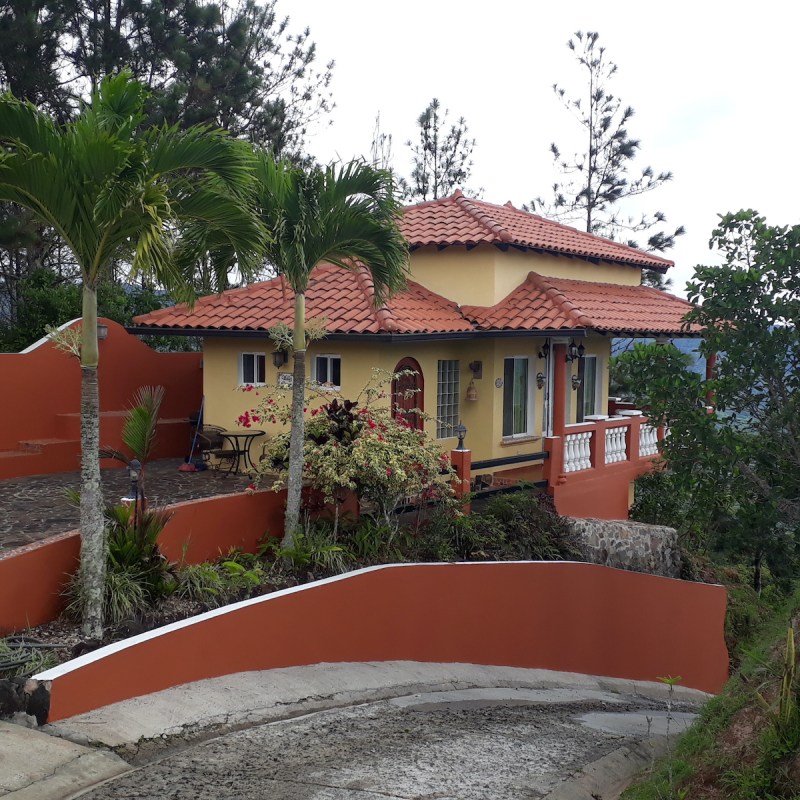
Congratulations! After researching and visiting many areas, you’ve just found your new expat home and mentally moved in before dinner. I know how exciting it is after moving from Chicago to Costa Rica in December 2003, then to Panama City in June 2004.
Videos by TravelAwaits
I hope you’ve taken to heart the experienced expat mantra “Rent before buying.” Living in the area is vital before making a long-term commitment. But, even if you have, my bet is you’ve missed a vital point in your research because I made the same mistake.
Since 2011, I’ve worked with former White House physicians representing medical services. I learned the why and how behind their Advance Team visits for domestic and foreign trips. They left no stone unturned, and through their expert eyes, I saw my own expat healthcare errors.
Based on their insights, and my experience, before signing a rental agreement, I now know paying a visit to the local ambulance is a must. Your idea of an ambulance may not match the city or town’s reality. What you discover may affect your decision. Even if you’ve already made the move, read on. I’ll cover some ways to mitigate these issues, wherever you are in your expat process.
1. See The Ambulance
Go with someone who speaks the language, and if possible, have a local join you. You’re also looking for non-verbal and cultural cues, which they’ll know. Even how you ask may determine getting the right answer. Bring some local pastries and ask for a tour. You’re not there to do an inspection, and your attitude should show that. It’s more of a “what you need to have” visit.
Look inside the vehicle, noting if it’s clean and orderly. What they don’t have on board means you must balance self-sufficiency with the care first responders can provide.
Here are key questions to ask during your ambulance visit:
- Which emergency contact numbers do they recommend? (Sometimes, they have unpublished direct lines. Related: Are there when times the phone lines don’t work?)
- What kind of training do they have? (A delicate question best framed around where they were trained. Avoid putting any on the defensive.)
- What do they normally carry with them? (This determines your level of self-sufficiency at home.)
- Which patients are they not well prepared to handle? (This may be your deal-breaker.)
- What patient information do they need? (And what about the receiving medical facility?)
- Where would they normally take you? (Ask your primary care physician about this. They may have different ideas about the most appropriate facility.)
- What did they use to clean the ambulance during COVID? (And now?)
Pro Tip 1: Always coordinate your training, equipment, and medication needs with your new physician. They have local knowledge. I ask new expats if they have a local physician. Sadly, many don’t. That’s how I know they need to uplift their care.
Pro Tip 2: Consult local expat forums and groups for organizations that can help with emergencies. In Chiriquí, Panama, for example, Rodny Direct runs a 24/7 bilingual helpline and charges just $90 per year. Services such as Rodny Direct bridge the communication gap, and may be a lifesaver.
2. Ensure The Ambulance Can Find You
Whether the ambulance can make it to your new residence if you need it is a serious consideration. Developed-world 911 systems have better location data, but it’s not the norm elsewhere. Panama, for example, rarely uses house numbers, making things more difficult in emergencies.
Key questions to ask:
- What directions will they need to find your home? (Do they use Waze, which is very popular in developing-world countries? If yes, what if the driver loses their phone or doesn’t pay their bill and has their data cut off?)
- What would make it easier for them?
Pro Tip: As adrenaline pumps, your thinking skills and language proficiency level drop. Have translated directions near your home phone and in your car. Create a note on your cell phone. When needed, copy and paste to send via text message, Telegram, or WhatsApp. I have a screenshot of a map showing our home. I have it marked on Waze so it’s easy to share. Many translators can do a phonetic version if you’re not fluent enough.

3. Know If The Ambulance Will Arrive — And In Time
Not long after arriving in Costa Rica, I moved to a mountain home with an incredible Pacific Ocean view. Cheap lesson learned: Blinded by that view, I was sold in a minute, and mentally moved in 18 minutes later. (I call this the Expat Primary Color Effect. You see 16 colors upon arrival, which limits your judgment.)
Getting to paradise required crossing a charming, bridgeless 4-inch-deep river in the dry season.

Later in the rainy season, swift currents and raging torrents were common and prevented crossings for days. Even large trucks thought twice. So much for charming. Further up the mountain, there was another crossing, albeit with a bridge, with similar late rainy season raging torrent issues. At its worst, our neighbors said you could hear the river rearranging the boulders. I heard that after moving in…

Our graded gravel and mud mountain road was a slippery mess in hard rain storms. The steep grade made it difficult even for 4-wheel-drive SUVs. If any serious medical issue happened at that time of year, I was screwed.

After 7 months in Costa Rica, moving to Panama solved that problem.
Key questions to ask:
- When might an ambulance have issues getting to your home? (Seasonal issues such as what I experienced come into play. Related: Many smaller villages and towns have local festivals, which may affect arrival times.)
- What do they suggest will make it easier to reach you? (This depends on patient condition. Sometimes moving a patient is ill-advised.)
- How long will it take? In the heart of Panama City, our closest ambulance is four blocks away on a major street. During rush hour, that’s a galaxy far, far, away, as few locals give way to emergency vehicles. Understand when delays are likely.
Before leaving, thank the crew for their time and their service.
4. Know What To Expect If The Ambulance Doesn’t Make It
Here’s the value of having a local primary care physician. Mine told me that because of COVID-19, almost all public ambulance services in Panama are over-extended. Early on, the Ministry of Health told everyone feeling sick to call for an ambulance. There wasn’t time for routine maintenance. Now, they’re playing catch-up while attending to far more calls. Priceless insider knowledge.
Key questions:
- If you needed one, and the ambulance couldn’t come, what would your PCP do? (You’re looking for insider knowledge and tips.)
- Who would they call? (Maybe they have a friend with a private ambulance service. Some doctors own them as investments. Can they share contact info?)

5. Explore Private Ambulance Services
Here in Panama City, we have several with low monthly membership fees. SEMM is one example. There’s no added charge when you call because the membership fee covers the cost. The air medical transport businesses I worked with used memberships, too. It’s a better business model than fee-for-service.
For higher-risk patients, consider signing up with a second service. Again, ask your primary care physician for their advice on your medical logistics issues.
Pro Tip: Many local banks and other service providers, such as mail forwarders, offer discounts for these services.
6. Bonus Suggestion: Find Your Local PCP
Arrange your new primary care physician soon after arrival. They’ll help guide you with medical logistics and response issues based on your medical status, new home location, and localized knowledge. If they can’t help with your new home location, they’ll most likely know someone to call.
I know getting answers to these important questions will help give peace of mind and make your expat experience far more enjoyable.
Related Reading
